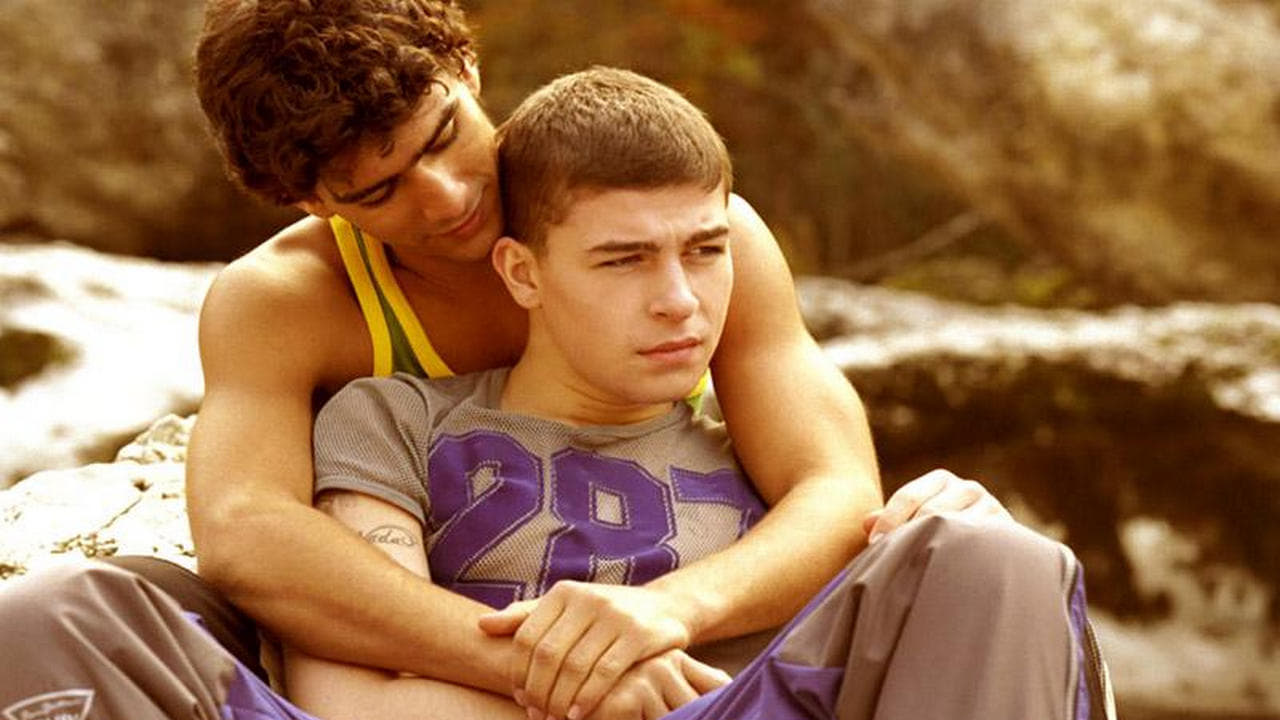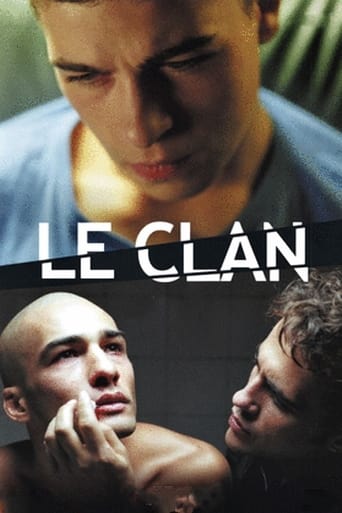

Purely Joyful Movie!
... View MoreDisapointment
... View MoreIt's hard to see any effort in the film. There's no comedy to speak of, no real drama and, worst of all.
... View MoreThis is one of the few movies I've ever seen where the whole audience broke into spontaneous, loud applause a third of the way in.
... View MoreWorst cruelty to a dog in cinema history.... One only hopes it was staged. The overall depressing movie not worth the few scenes of male nudity. No women to be found in this french coming of age for 3 very disturbed brothers. If this is the way it is for french youth no wonder they are rioting. The plot is so hidden I couldn't give you a spoiler if I tried to. It is the worst french movie I have ever watched. I saw the advocate say this movie was "sexy", but I saw it as very depressing and I didn't relate or have sympathy for any of the characters except the dog. Gael Morel purposely features the puppy in various playful scenes early in the movie so he can heighten the shock for the movie viewer.... there never is any understanding of why this needed to be in the movie.
... View MoreFor the originality of its content and manner of telling, Gael Morel's "Le Clan" deserves wide art-house distribution. It does, however, need a better English title. Life may be difficult for people in the film, but they are not slaves and make choices that attempt to better their situations, if not always happily. Why not simply "A Clan," since nobody remembers Griffith's second title for "Birth of a Nation," or "Brothers"? Two boys practice a North African "slave dance," but for sport and release.The tightly edited movie can be thought of as short stories about three brothers and their father. With rapid shifts we keep learning new things about the characters. Sometimes one wonders what went on during a gap, but usually one can figure it out and the dialogue that would have worked it through would have been sentimental and out of character.One shot of the brothers huddled together watched by their father is difficult to justify realistically, but it works as a symbolic representation. If meanwhile one wants everything spelled out and sweetened, there is the Québec film "C.R.A.Z.Y." The brothers do maintain enormous familiarity. The youngest one, very drunk, is helped by a brother to vomit.If that's shocking, we have to take it as a fact of the milieu. The banlieux of France have recently been in the news. "Le Clan" goes much further with stories that lead one to care for the characters in the variety of their difficult situations of social derogation, dangerous labour, sexuality, and self-esteem.
... View MoreLe Clan (3 Slaves Dancing) is a relentlessly bleak, dreary film, showing us the despair and grayness of the characters' lives without any hint at redemption. The considerable violence in the film (a couple of scenes are definitely not for those squeamish about blood or animal cruelty) underlines the darkness they inhabit, but gives us no insight into how they cope with it, much less how they might hope to emerge from it. The actors turned in fine performances, and the film has moments of visual beauty, but the story lacks an upside. The characters' lives progress from lousy to terrible as they turn away from any form of hope. I liked À Toute Vitesse (Full Speed), also by Gaël Morel, and I look forward to better work from the director and the cast in the future, but I recommend giving this one a miss.
... View MoreThis is the story of 3 working class brothers, living with a weak father in the aftermath of their mother's death. The film is formally divided into 3 sections, one for each brother, although the protagonist remains the first brother we explore, Marc, a tortured soul.CONTAINS SPOILERS Marc is an interesting character, unable because of his position in a macho subculture to access his feelings, even though he often shows the potential to be a caring individual. When he is beaten up by some local thugs and his dog killed, he takes a revenge which rebounds on him, leaving him paralysed, machismo is paralysing being the point.The most interesting section of the film has the older brother Christophe's taking a job in a meat factory. He soon rises in his bosses' estimation and is promoted. On the way he has learned that to survive in the workplace, one has to be ruthless. We last see Christophe with a girlfriend and a future. We know that he has achieved that future by accepting his part in a dehumanising world. It is no coincidence that he has been released from a spell in prison at the play's start. Prison has tamed him, he has agreed to conform, he takes his place amongst the dead meat, he is rewarded.The film is strongly homo erotic and the camera spends its time dwelling on the brother's bodies, especially Marc who is exceptionally attractive (making it all the more tragic when he body is crushed. I have read a po-faced review which says that this reduced its characters to sex objects. This is telling about a certain type of Puritanism. Many young working class men are beautiful and indescribably sexy - the film puts this at the centre of the equation, so as not to geld the subject.In any case, there is a narrative excuse for the camera's gaze: the story is seen through the eyes of a family friend, who is gay and eventually has a brief affair with the youngest brother, Olive. The affair ends abruptly. The film is no Queer as Folk fantasy. Olive retreats from a love affair in which his femininity can be expressed sexually and freely to become Marc's carer, his femininity giving him his dead mother's place in the family and so becoming helpful, familiar, imprisoned. His lover "escapes" to a "free" urban life in Paris, where people merely want to exploit him for sex. The choices given the film's characters are bleak.Le Clan is slow and elliptical in narrative terms but eventually becomes clear. It is worth sticking with as a complex and honest dissection of working class masculinity.
... View More